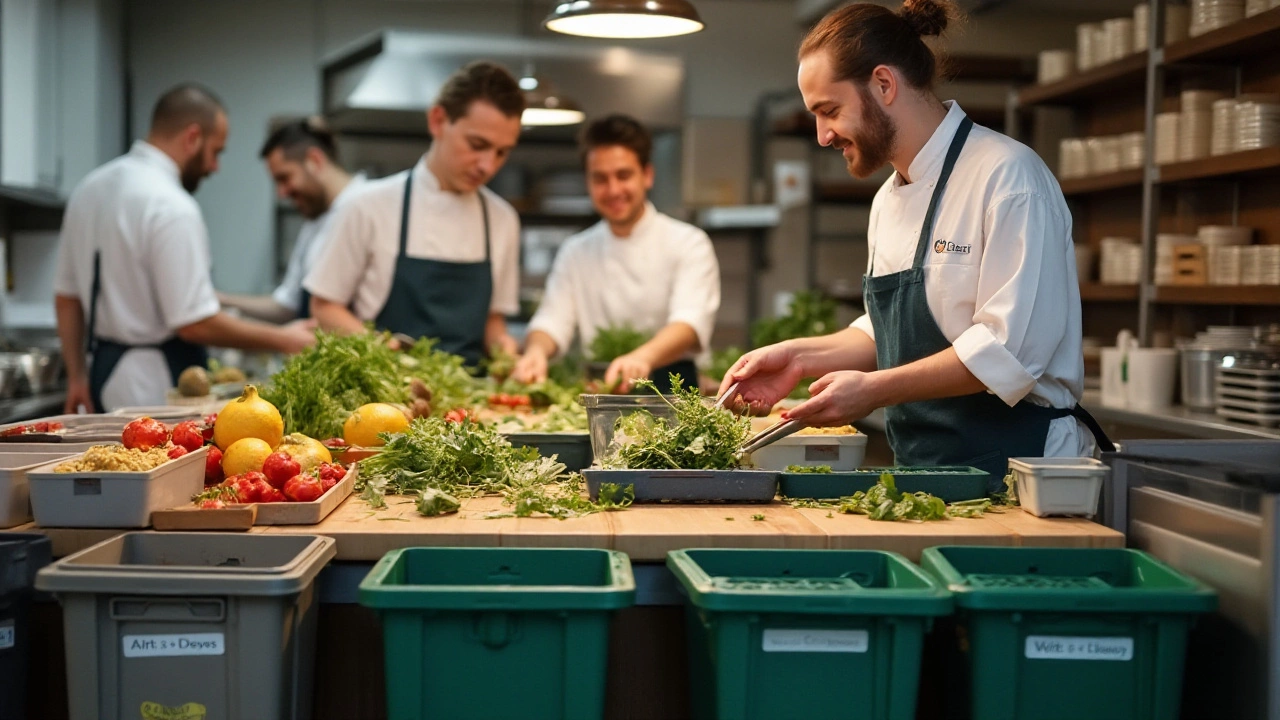All-inclusive hotels often face the challenge of dealing with leftover food, as they cater to high volumes of guests. Many hotels are adopting innovative strategies to reduce waste and promote sustainability. This article explores what happens to excess food in all-inclusive resorts, including donation programs, composting, and creative reuse of ingredients. It also discusses the importance of these practices in minimizing environmental impact and enhancing guest experiences.
Food Waste Management: Quick Tips to Cut Kitchen Waste
Did you know the average family throws away about 30% of the food they buy? That’s money, time, and resources gone for nothing. The good news? You can turn those wasteful habits around with a handful of easy changes.
Plan, Shop, and Store Like a Pro
Start by writing a short meal plan for the week. Jot down breakfast, lunch, and dinner ideas, then shop only for the items you really need. It sounds simple, but most of us buy extra because we’re not sure what we’ll cook later. When you have a plan, you’ll see exactly how much you need and avoid impulse buys that end up rotting in the fridge.
Next, give your fridge and pantry a quick makeover. Keep older items at the front and newer ones at the back so you use what you have first. Store fresh produce in the right containers – for example, leafy greens stay crisp in a damp paper towel inside a zip‑lock bag. Proper storage can add days to the life of fruits and vegetables, meaning fewer forgotten carrots.
Make the Most of Leftovers
When dinner is done, don’t toss the leftover bits. Turn them into new meals. A few leftover veggies can become a tasty stir‑fry, and stale bread makes excellent croutons or breadcrumbs. If you’re short on time, batch‑cook a big pot of soup or chili and freeze portions for later. That way you’ll always have a ready‑made meal instead of reaching for a take‑out option.
Another easy trick is to repurpose the water you use to boil veggies. Once cooled, that nutrient‑rich water can boost soups, sauces, or even your coffee grounds for watering plants. It’s a small step, but it adds up when you do it regularly.Don’t forget the peels and stems. Many of them are perfect for homemade stock. Save onion skins, carrot tops, and celery leaves in a zip‑lock bag in the freezer. When you have a bag full, simmer them in water for an hour and you’ve got a flavorful base for soups without buying store‑bought stock.
Finally, keep a “use‑it‑up” box in the fridge. Whenever you notice something getting close to its deadline, move it to the front and plan a quick dish around it. This visual reminder helps you act before the food spoils.
Food waste management isn’t about massive overhauls; it’s about small habits that stick. A weekly meal plan, smarter storage, and a habit of repurposing leftovers can cut your kitchen waste dramatically. You’ll save money, enjoy fresher meals, and do your part for the planet – all without spending hours in the kitchen.
Give these tips a try this week and watch the difference. You might be surprised how much food you actually keep when you’re intentional about it.
